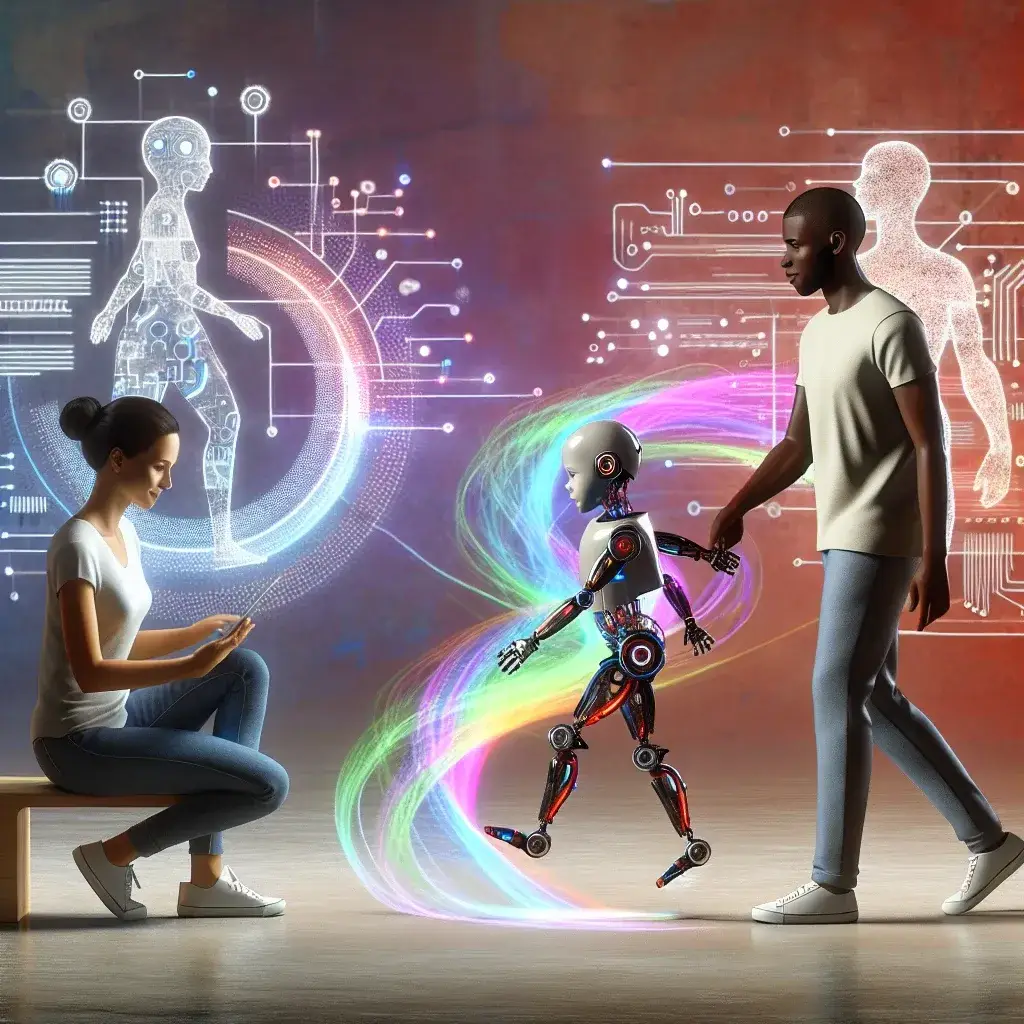Introduction
In the rapidly evolving landscape of technology, artificial intelligence (AI) stands at the forefront of innovation. As developers strive to create more intelligent and adaptive AI agents, an unlikely source of inspiration emerges: radical parenting theories. This article delves into the application of these unconventional parenting philosophies to AI agent development, exploring their implications, benefits, and potential challenges.
Understanding Radical Parenting Theories
Radical parenting encompasses a range of non-traditional approaches to child-rearing, often challenging societal norms and expectations. These theories prioritize autonomy, creativity, and critical thinking over obedience and conformity. Key principles include:
- Unconditional Support: Encouraging children to express their thoughts and feelings openly.
- Self-Directed Learning: Allowing children to explore their interests and learn at their own pace.
- Critical Engagement: Teaching children to question authority and think independently.
- Community Focus: Engaging with diverse communities to foster empathy and understanding.
The Parallels between Parenting and AI Development
At first glance, parenting and AI development may seem worlds apart. However, both processes involve nurturing growth, fostering independence, and navigating complex emotional landscapes. Here are several ways in which radical parenting theories can be applied to AI agent development:
1. Encouraging Autonomy
Radical parenting emphasizes the importance of autonomy in a child’s development. Similarly, AI agents equipped with autonomous decision-making capabilities can adapt and learn from their environments. Developers can draw from radical parenting principles to create AI systems that prioritize self-directed learning and exploration.
2. Fostering Creativity
Just as radical parenting encourages children to think outside the box, AI development can benefit from innovative problem-solving approaches. By integrating creative algorithms and allowing AI agents to experiment, developers can unlock new avenues for AI exploration and growth.
3. Emphasizing Emotional Intelligence
Radical parenting often focuses on emotional intelligence, teaching children to recognize and manage their emotions. In AI agent development, incorporating emotional AI can enhance interactions between humans and machines, fostering empathy and understanding in communication.
4. Promoting Critical Thinking
Teaching children to question assumptions and think critically is central to radical parenting. AI systems that prioritize critical thinking can analyze data more effectively, identify biases, and adapt to new information, leading to more intelligent and responsible decision-making.
Historical Context: The Evolution of Parenting Theories
To fully appreciate the relevance of radical parenting theories in AI development, it is essential to understand their historical context. Parenting theories have evolved significantly over the years, from traditional authoritarian models to more progressive and child-centered approaches. Notable movements include:
- Behaviorism: Focused on observable behaviors and external reinforcements.
- Attachment Theory: Emphasized the bond between parent and child, advocating for responsive parenting.
- Progressive Education: Promoted experiential learning and individual interests.
As these theories gained traction, they paved the way for the radical parenting movement, which further challenges conventional wisdom and encourages a more holistic approach to child development.
Future Predictions: The Role of AI in Parenting
As AI continues to advance, its potential role in shaping parenting practices cannot be overlooked. AI-powered applications could provide parents with personalized insights, helping them navigate the complexities of child-rearing. Moreover, AI agents could embody radical parenting principles by:
- Offering Tailored Guidance: Providing individualized recommendations based on a child’s unique needs and interests.
- Facilitating Learning Experiences: Creating immersive educational environments that adapt to a child’s learning style.
- Supporting Emotional Development: Enhancing emotional intelligence through interactive and empathetic responses.
Pros and Cons of Integrating Radical Parenting Theories into AI Development
While the application of radical parenting theories to AI development offers numerous advantages, it also presents potential challenges. Here are some pros and cons to consider:
Pros
- Enhanced Adaptability: AI agents that prioritize autonomy can better adapt to changing environments.
- Improved User Experience: Fostering emotional intelligence can lead to more meaningful interactions between humans and AI.
- Fostering Innovation: Embracing creativity can inspire novel approaches to problem-solving in AI development.
Cons
- Ethical Concerns: Autonomy in AI raises questions about accountability and decision-making.
- Complexity of Implementation: Integrating emotional intelligence and critical thinking into AI systems can be technically challenging.
- Potential for Misinterpretation: AI agents may misinterpret emotional cues, leading to unintended consequences.
Real-World Examples of AI Agents Incorporating Radical Parenting Principles
Several AI applications and projects exemplify the integration of radical parenting theories into their development:
- Chatbots for Emotional Support: AI chatbots designed to provide emotional support, such as Woebot, utilize principles of emotional intelligence to engage users empathetically.
- Personalized Learning Platforms: Adaptive learning technologies, like DreamBox, allow students to explore mathematical concepts at their own pace, reflecting the self-directed learning philosophy.
- Creative AI Projects: Initiatives like OpenAI’s DALL-E demonstrate the potential for AI to engage in creative processes, producing visually compelling artwork based on user prompts.
Cultural Relevance of Radical Parenting Theories
Radical parenting theories have gained traction in various cultural contexts, reflecting a shift towards more inclusive and progressive approaches to child-rearing. In diverse communities, these theories emphasize the significance of understanding and valuing different perspectives. AI development can benefit from this cultural relevance by:
- Incorporating Diverse Voices: AI systems that reflect diverse cultural backgrounds can enhance their understanding of human behavior and emotion.
- Fostering Inclusivity: Engaging with various communities can lead to more equitable AI solutions that serve a broader audience.
Conclusion: Bridging the Gap between Parenting and AI Development
The intersection of radical parenting theories and AI agent development presents exciting possibilities for the future. By embracing principles of autonomy, creativity, emotional intelligence, and critical thinking, developers can create AI systems that are not only more intelligent but also more attuned to human needs. As we forge ahead in this dynamic field, it is crucial to remain mindful of ethical considerations and the complexities of implementation. Ultimately, the insights drawn from radical parenting can guide the creation of AI agents that foster meaningful connections and enhance the human experience.

